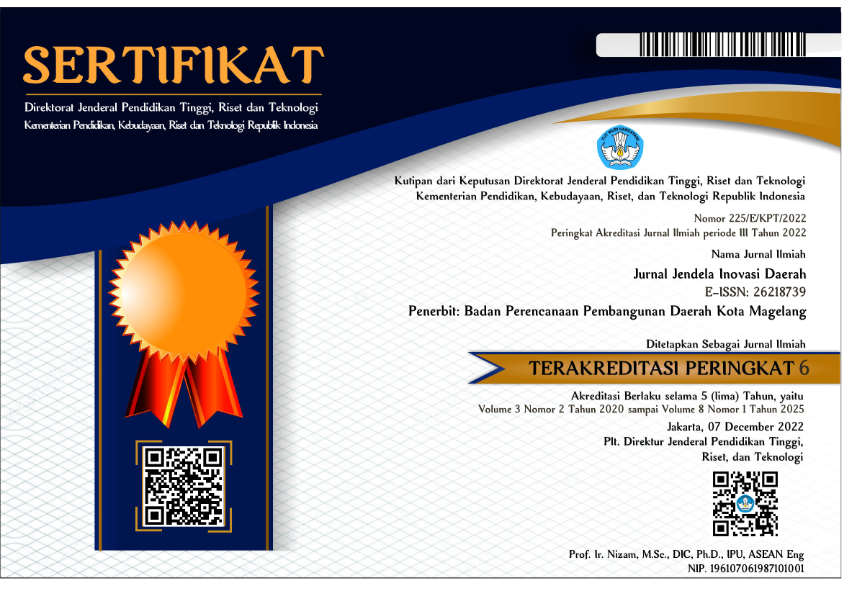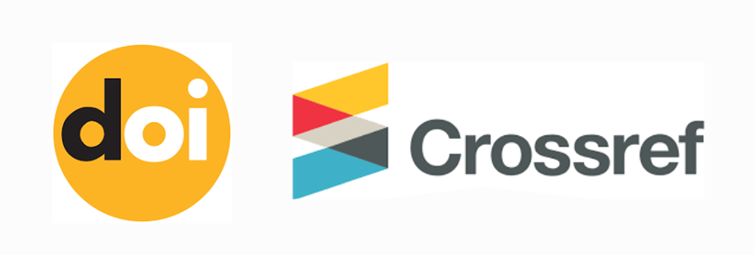ANALISIS PROGRAM UNGGULAN RODANYA MAS BAGIA KOTA MAGELANG BERBASIS CONTEXT, INPUT, PROCESS, PRODUCT (CIPP)
Abstract
The City Government of Magelang has implemented the Rodanya Mas Bagia program to reduce the poverty rate. There is no information showing the evaluation, success, constraints, obstacles or carrying capacity of the Wheel of Mas Bagia flagship program. it is necessary to analyze the program objectively to monitor the progress and success of the Rodanya Mas Bagia program, to fulfill the answer to the transparency of the Magelang City Government's flagship program. The research objective is to describe; 1) results of evaluation of the context, input, process, product regarding the wheel program, bro; 2) assess feasibility, 3) prepare sustainability recommendations. Evaluative research with the CIPP evaluation model approach. The primary data source in this study is community satisfaction mapping data obtained through the response of the program target community, the performance of the actors, the program implementing committee. The population of all RTs is 1,201 RTs. Samples with the slovin formula obtained as many as 93 RT. The sampling technique in this study was a proportional random sampling technique. Data collection methods with questionnaires, interviews, observation, documentation. The data analysis used is descriptive percentage to determine the feasibility level of the CIPP evaluation aspect. Analysis of recommendations and sustainability with qualitative descriptions, with saturated data from triangulation of data, sources, methods, and time. Efforts to increase the credibility of the data are carried out by extending the research time and re-examining the research data obtained. The results of the study, the description of the CIPP evaluation explained in quantitative data that the aspect with the lowest quantification is context evaluation with a percentage of 58%, input evaluation with a percentage of 69%. Process evaluation component with a percentage of 66%. product evaluation with a percentage of 69%. The feasibility of the program, the legal aspects fulfill the legal legality aspects, do not violate legal and statutory aspects and are worthy of being continued. A positive culture that strengthens empowerment: a culture of mutual cooperation in solving problems, reaching consensus, identifying problems, and discussing and agreeing on solutions. Sustainability of the program is continued and continued with socialization, understanding of the community regarding the objectives and essence of the program. Community participation can be optimized so as to increase the degree of welfare. Scheme of technical assistance for program proposals in accordance with the professional field.
Copyright (c) 2023 Jurnal Jendela Inovasi Daerah

This work is licensed under a Creative Commons Attribution-NonCommercial-NoDerivatives 4.0 International License.
















